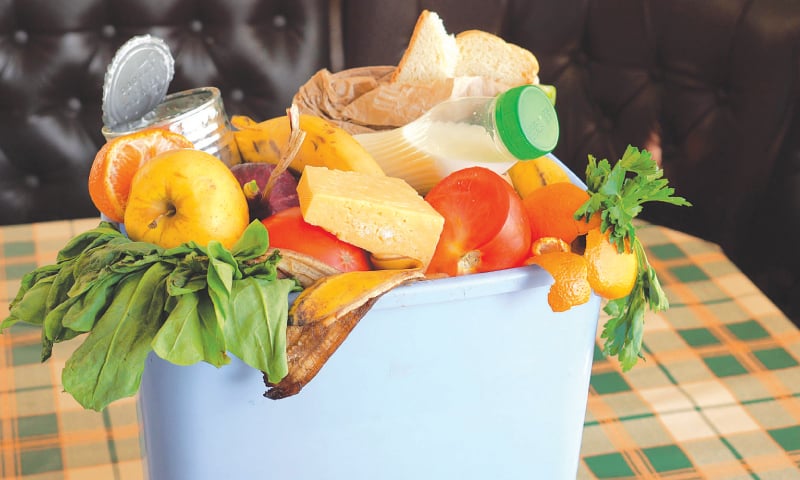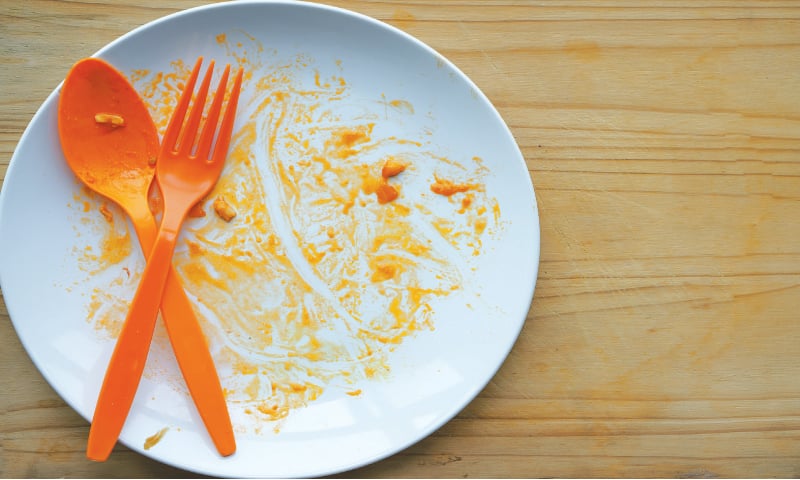“Haven’t I told you many times not to leave food on your plate and take only what you can eat?” Ahmar’s mother scolded him when she saw his half-eaten plate lying in the kitchen. She had been telling him not to waste food for long, but that seemed to have had no effect.
Frustrated, she sat him down for a serious talk. She told him that he should realise that wasting food is not a good habit and he should be grateful that he has enough to eat as a large number of people in the world, even children his age, go to bed hungry because of a lack of food. While driving back from school the next day, she pointed towards a group of children scavenging the garbage to find something to satisfy their hunger.
Ahmar was shocked to learn that children would eat something they take out from garbage. His parents had always told him not to buy anything from a street vendor as it was not hygienically prepared and now he was being told that someone would eat what he had thrown in the bin.
He asked his mum why these children were hungry and eating like that. She explained that there were thousands of people who did not have jobs or, despite working for hours every day, do not earn enough money to buy food for their families. She advised him to search the internet to further look for info on hunger and food wastage.
Ahmar learnt the scary fact that more than 800 million people worldwide — more than one in every nine persons in the world — do not get enough to eat; and that approximately 3.1 million children die from undernutrition every year. It is estimated that millions of tonnes of food go to waste in Pakistan every year, while 43 percent of the country’s population is food insecure.
According to the Global Hunger Index 2018, Pakistan is ranked at 106th place out of a total of 119 countries.The sad part is that this is not because the world does not produce enough food, but because the food that is produced is wasted in a number of ways.

While a lot of food is lost during the supply chain (production, post-harvest handling, processing, and distribution), a lot of food is wasted at homes, in hotels and restaurants, at events such as weddings, etc. Food is left on the plates because people take out more than they can eat, especially at weddings and other functions. It would help if people could make it a habit to only take the amount food that they can eat without wasting any of it. If they still want to eat more, they can always take a second helping, which is better than taking a large amount at first and leave part of it to go to waste.
Often people, who can afford to, buy more than what they can consume and the leftover food, if not used soon, goes stale. It is like you go to a shop and ask your parents to get you all a lot of patties, juices, etc. at the same time, but then are not able to finish them before the expiry date, they get stale and can only be thrown away. You could not eat it and deprived someone else of the chance to eat.

Food is also wasted when hotels and restaurants prepare more than they can serve just because they are afraid some guests might order something and they may be short of it. Some eateries have a large serving size which an average person cannot finish and the leftover food is thrown in the bin. Superstores and grocery stores overstock perishable items so as not to run short, and food that is not sold within the expiry date is wasted.
Can you tell where all the food that is wasted go? Yes, in the garbage bins and ultimately to the landfill sites. So don’t you think it is better to give it to someone who can satisfy his/her hunger than throw it away?
You may have noticed that your mum often gives the leftover food to the maid to take it home so her children can eat better. It is a good gesture and helps avoid food wastage. Mothers can manage food wastage in their kitchen, but things have to be done on a larger scale to help resolve global hunger.
For this, there are many people and organisations who, having realised the problem, are working to save the food from being wasted; they retrieve edible food that would otherwise go to waste and distribute it to those who need it — i.e. those who cannot afford to buy food. Organisations that work to save food from going to waste and supply it to those in need are involved in what is known as food rescue, food recovery, sharing, gleaning, etc.

Organisations around the world such as City Harvest (New York), Oz Harvest (Australia), Second Helpings (Indianapolis, USA), Culinary Misfits (Berlin), Second Bite (Australia), Feeding the 5000 (UK/International), FUSIONS (European Union), Last Minute Market (Italy), etc. take extra or leftover food that would otherwise go to waste from places such as grocery stores, markets or restaurants and hotels and distribute it to the needy. These are voluntary organisations.
Going a step further, now many countries are taking measures to reduce food wastage; some have even made laws discouraging food wastage. For example, in 2016, Italy passed a law to limit food waste, making it easier for companies and farmers to donate food to charities and is encouraging greater use of ‘doggy bags’ at restaurants to curb food wastage. The same year, France became the first country in the world to ban supermarkets from throwing away unsold food, forcing them instead to donate it to charities and food banks before it is spoilt.
As an attempt to reduce food wastage and enable the needy to get what they want, in an open air market in Italy, the leftover food is collected at the end of the day and distributed to those in need. Once the market closes, the shopkeeper is asked to hand over unsold food and help the hungry by giving it to them for free.
All the talk about what is being done around the world does not mean that nothing is being done in this respect in our country. Pakistanis are very generous and always ready to help their fellow countrymen in times of need. They just need some motivation and they are all ready to go.
We have several voluntary organisations, or food rescue groups, such as Robin Hood Army, Thali and Rizq, etc., run by our countrymen and women, who are working day and night to help reduce food wastage and provide the poor and needy with nutritious food. They collect leftover food from restaurants and hotels and after properly packaging it deliver to the poor and the needy at their homes. Some of them even collect from your house if you call them.
So, if you had a party and a lot of food is left uneaten (of course, not in people’s plates but in pans) you can call some of these organisations and they will come and collect the leftover food to help at least some people satiate their hunger.
These days when there is news all over about people losing their livelihoods because of the shops and businesses being closed due to coronavirus scare, a lot of people are helping the needy in their individual capacities or in form of groups and providing rations to them so their families do not have to go hungry.
At your age, you may not be able to do much but there is still something you can do in your individual capacity or with your friends. In the first place, act wisely and do not take more than you can eat so your leftover food does not go to the bin. Take small amount in your plate and take a second helping if you are still hungry.
If you are eating at a restaurant, ask the waiter to pack the leftover food (make a doggy bag) and on your way back you can give it to any beggar or street child you happen to see. Believe, me they will be more than happy.
Published in Dawn, Young World, June 6th, 2020















































